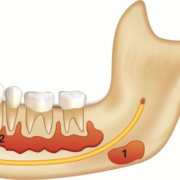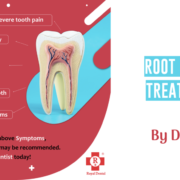Did you know that the way you breathe has a direct impact on how much decay is growing in your mouth? Mouth breathing is something most people experience at some point, whether it’s from allergies or from feeling stuffy from a cold. It’s when you take shallow breaths through your nose or mouth instead of taking deep breaths through your nostrils. When your mouth is breathing all the time, this creates bacteria-friendly environment that leads to cavities and oral health problems. Read on to learn more about why, how, and what you can do to prevent it.
What is mouth breathing?
Mouth breathing is when you breathe through your mouth instead of your nose because the nasal passages are either blocked or there’s not enough nasal airflow. People who mouth breathe often have sinus issues, such as a deviated septum, nasal polyps, or nasal allergies. Mouth breathing during sleep is especially common in kids and pregnant women.
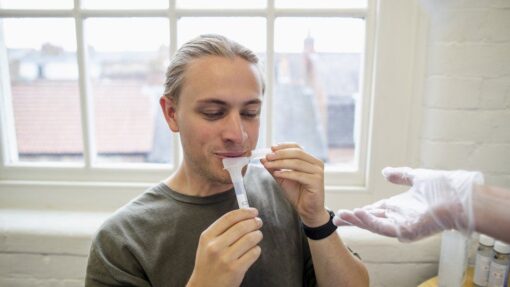
If your mouth breathes, the air is pulled through your teeth, gums, and surrounding areas. This makes it easier for food particles and bacteria to get into your teeth and gums. This could lead to cavities, bad breath, and plaque build-up that can lead to other health problems, such as gingivitis and tooth decay.
Why does mouth breathing cause more cavities?
When you breathe through your mouth, the bacteria from your tongue and the food particles in your mouth are drawn into your throat and down into your lungs. There they can cause infections, including pneumonia. When you breathe through your mouth, you also lose some of your saliva, which has natural antibacterial and antiviral properties. Saliva cleans teeth and fights the bacteria that cause cavities.
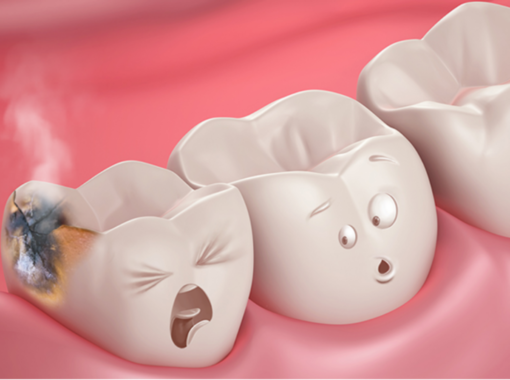
While you’re mouth breathing, you may have a dry mouth, which leads to more cavities.
When your mouth is dry, it may also be harder to brush your teeth. This can lead to plaque build-up and cavities.
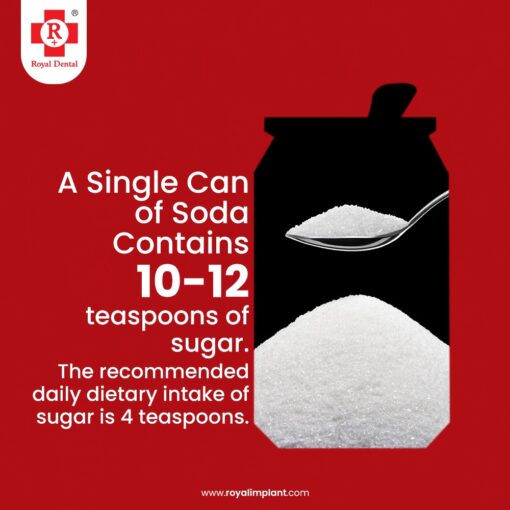
When your mouth is dry, you may be more likely to drink sugary drinks, including sodas and sports drinks.
These drinks (which can also be high in sugar) make your teeth more prone to cavities.
So when you breathe through your mouth, you are at an elevated risk of experiencing dry mouth. Dry mouth increases the acidity in your mouth, putting you at greater risk of developing tooth decay.
How to stop mouth breathing?
The first step to dealing with mouth breathing is identifying why you are doing it in the first place. From there, you can work with a doctor to correct the issue, or you can try some at-home methods to stop the mouth breathing. If you have allergies, you can try to reduce your exposure to the allergens by keeping your house clean and removing your pets when they are shedding. You can also try allergy shots to desensitize your allergies over time. If you have a deviated septum, you can try sleeping with a humidifier.
You can also use a decongestant before sleeping if you feel like you are still blocked up. You can also try sleeping with a thin pad between your nostrils to help open up the breathing passageways. If you are pregnant, it may be necessary to use a humidifier, breathe through a cool mist, or even use a nasal strip to keep your nasal passageways open.
Mouth breathing causes dry mouth and throat problems
When your mouth breathes, the air you breathe in goes through your teeth and gums, allowing germs and bacteria to flow into your body. This can lead to cavities and infections, including strep throat. When you have a dry mouth, you can also experience throat problems like hoarseness, coughing, and loss of voice. When your mouth is dry, it is harder to talk and swallow. This can lead to problems pronouncing certain sounds, like “th” and “sh,” and even hoarseness. If the dry mouth is due to Sjogren’s syndrome, then a doctor may prescribe medications to help.
In fact, researchers found evidence to support this idea in a recent study. They learned that acid levels were much higher in participants who slept with their mouths open, putting them at a significantly higher risk for cavities. Breathing through your mouth can dry out your gums and the tissue that lines your mouth. This can change the natural bacteria in your mouth, leading to gum disease or tooth decay. Over long periods of time, mouth breathing can also lead to physical changes in children.
Summary
Mouth breathing leads to a higher risk of cavities, gum disease, dry mouth, and throat problems. It’s best to breathe through your nose, and if you have to breathe through your mouth, remember to keep your mouth closed. If you notice your mouth breathing is causing problems in your mouth, talk to your doctor to find out what you can do to ease the symptoms and improve your health. If you experience dryness in your mouth, you can try drinking more water, this helps keep the mouth hydrated. You can also try chewing sugar-free gum, which increases the flow of saliva. If you’re looking for a more long-term solution, you can also try a mouthwash that contains fluoride.


